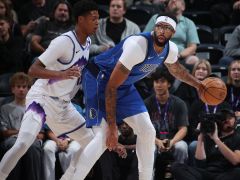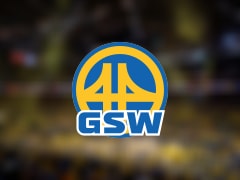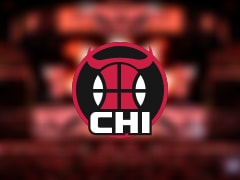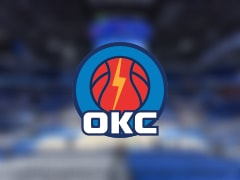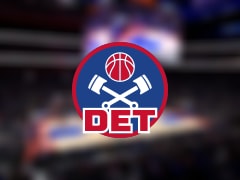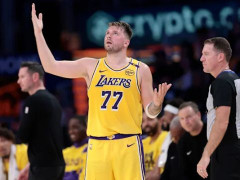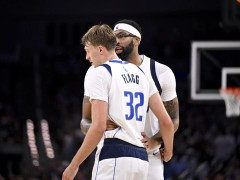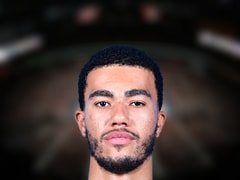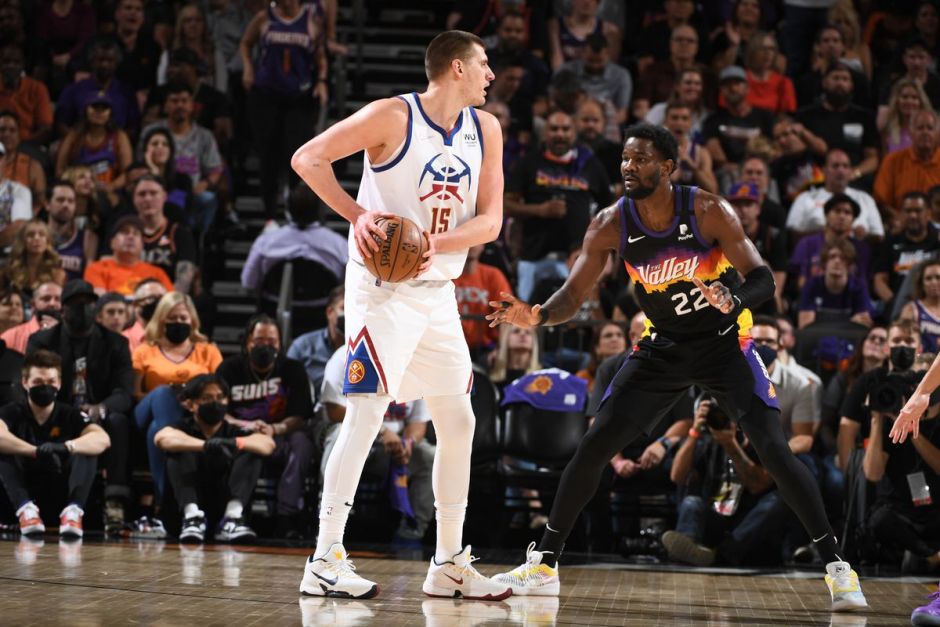
回到他的新秀赛季,我记得当迪安德尔·艾顿因为自己在赛季中期的一些随机对决中表现不佳而沮丧得几乎流下眼泪的时候。太阳队的通讯副总裁朱莉菲不得不说服他,帮助他通过媒体的质询,并离开竞技场的夜晚没有崩溃。艾顿踢得太差,太阳队输了,他在球场上看起来像个男孩,这让他丧命。
无论是史蒂文·亚当斯、哈桑·怀特塞德、乔纳斯·瓦兰齐乌纳斯,无论是谁,艾顿在他第一个NBA赛季的身体状况都经常被对手超越。他事后表现出的失望是显而易见的。但当他没有那么沮丧的时候,常常听到艾顿称赞那些更大、更快、更强的对手,并夸耀自己在与他们的比赛中学到了多少。与最好的对手比赛似乎激励他变得更好。
知道了这一点,太阳队把他和其他大个子搭档,希望他们能把他带到最好的状态。这就是为什么你看到他们把钱花在像里查恩·霍姆斯和阿隆·贝恩斯这样被证实的商品上,即使艾顿花了大部分时间。
这很有帮助。必须比赛几分钟是一个很好的胡萝卜在他面前举行,但更重要的是,我们不断听到艾顿对这两个狂欢,就像他做他的对手。艾顿喜欢福尔摩斯是一个顽强无情的火花塞,一个一直在球场上跑动,和联盟中任何人一样努力踢球的人。从巴恩斯那里,这位年轻的大个子学会了如何沟通,如何理解进攻和位置,以及如何在没有球的情况下发挥进攻的作用。虽然这并不总是正确的,但当谈到把艾顿培养成职业球员的时候,资深领导的想法确实奏效了。能看着他们真的让他好多了。
由于他们的目标是在2021年进行一次深度进攻,太阳队本赛季选择了外围球员而不是大个子球员,这使得艾顿在前场没有了导师或挑战者。这一点,再加上他们的计划给他带来的巨大责任,使得艾顿成为本赛季的主要x因素。当然,在季后赛的八场比赛中,他都以各种方式回答了问题。
巴恩斯留下的真空很大程度上是由保罗填补的,这意味着艾顿今年并非没有老师。基本上从训练营一开始,他们的友谊故事就从队里渗透了出来。保罗会早早出现在杨中心看电影,甚至在本周,艾顿告诉我们,保罗在举重室里不断的工作是如何促使他继续锻炼身体和调节身体的。考虑到保罗对队友的工作水平和一致性的要求,把保罗带进来被视为一种风险,但保罗不知疲倦的活动实际上似乎对艾顿来说是最好的。
在季后赛中,我们看到了艾顿的崛起,他在一个半回合的比赛中成为了保罗所说的球队的MVP。每晚35分钟,艾顿得到16.5分和10.4个篮板。太阳队的防守在艾顿在场上的情况下,每100次进攻就高达惊人的5.3分。
当艾顿还是一个小个子、注意力不集中、缺乏经验的球员时,他已经厌倦了输球和给他带来的痛苦,他会在季后赛面对安东尼·戴维斯和尼古拉·乔基奇,这是有道理的。不是一个修正主义者,也不是假装艾顿令人难以置信的表现是注定的,但也许我们应该比我们更期待它。
除了在球队规模变小的时候他是否能留在球场上的问题之外,他在MVP级别的比赛中发挥的水平应该不会让我们感到惊讶。他总是这么做。
在过去的三个赛季中,人们有时会觉得艾顿不适合詹姆斯·琼斯和蒙蒂·威廉姆斯在菲尼克斯培养的竞争环境。在2019年的停摆、泡泡中错过的科维德测试以及球场上一些愚蠢的打法之间,很容易描绘出一个球员没有全身心投入的画面。在他的脚踝扭伤恢复过程中,他刚从停赛中恢复过来,我看到他危险地拖着步子从太阳队的地下练习场一直走到比赛场地。教练和教练把他叫下来,但艾顿爬上陡峭的楼梯,越过栏杆,我们都看着他,他害怕自己会再次受伤,危及他的健康。我在季后赛看到的那个家伙和那个冒险者相比是不可辨认的。
这个艾顿一直沉着自信。他正在给实力较弱的球员灌篮,并在之后向他们展示自己的实力。他到处防守,不管是谁向他扑来。真是难以置信。虽然他性格中比较松散的部分可能总是存在的,但当谈到高水平的发挥时,艾顿会在需要的时候带来。
随着太阳队在季后赛的前进,艾顿面对的个人球员可能不如戴维斯或约基奇,但这支球队的集体工作只会越来越难接近冠军。在22岁的时候,艾顿已经证明了当挑战最大的时候他会站起来,这是他比赛中一个意想不到的和必要的方面,应该在接下来的比赛中为他和球队服务。
原标题:
Deandre Ayton has always excelled when challenged, and these playoffs prove it
原文:
Back in his rookie season, I remember watching as Deandre Ayton was moved nearly to tears from his frustration over his own poor performance in some random mid-season matchup. Suns VP of Communications Julie Fie had to talk him up, help him get through the media’s questioning, and leave the arena for the night without breaking down. It killed Ayton that he had played so poorly, that the Suns had lost, and that he had looked like a boy among men on the court.
Whether it was Steven Adams, Hassan Whiteside, Jonas Valanciunas, whoever, Ayton frequently looked overmatched physically by the opponent in his first NBA season. The disappointment he showed afterward would be palpable. But when he wasn’t so frustrated, it was common to hear Ayton praise those bigger, faster and stronger matchups and for him to talk up how much he’d learned competing against them. Playing against the best seemed to inspire him to be better.
Knowing this, the Suns paired him with other big men on the roster who they hoped would bring the best out of him. That’s why you saw them spend on proven commodities like Richaun Holmes and Aron Baynes even with Ayton soaking up most of the minutes.
It helped. Having to compete for minutes was a nice carrot to hold in front of him, but more importantly, we constantly heard Ayton rave about those two, just as he did his opponents. Ayton loved how Holmes was a tenacious and relentless spark plug, someone who ran the floor all the time and played as hard as anyone in the league. From Baynes, the young big man learned how to communicate, how to read an offense and be in positions, and how to be useful offensively without the ball. While not always true, the idea of veteran leadership really worked when it came to developing Ayton as a pro. Being able to watch them truly made him better.
With their sights set on a deep run in 2021, the Suns chose to stack their roster with perimeter players rather than bigs this season, leaving Ayton without that mentor or challenger in the frontcourt. That, coupled with the enormous responsibility that their scheme placed on him on both ends, made Ayton a major x-factor for the season. Of course, he’s answered in every single way throughout eight postseason games.
The vacuum that Baynes left was largely filled by Paul, meaning Ayton was not without a teacher this year. From basically the start of training camp, tales of their companionship seeped from the team. Paul would show up early to watch film with the young center, and even this week, Ayton told us how much Paul’s constant work in the weight room pushes him to keep working on his body and conditioning. It was seen as a risk to bring Paul in considering the level of work and consistency that he demands of his teammates, but Paul’s tireless activity seemed to actually be best for Ayton.
The payoff has come this postseason, as we’ve seen Ayton rise to the moment and become what Paul called the team’s MVP through a round and a half. In 35 minutes per night, Ayton is putting up 16.5 points and 10.4 rebounds. The Suns’ defense has been an astounding 5.3 points tighter per 100 possessions with Ayton on the floor.
It makes sense that the Ayton who was so fed up with the losing and the pain inflicted upon him when he was a smaller, less focused and inexperienced player would rise to the occasion against Anthony Davis and Nikola Jokic in the playoffs. Not to be a revisionist or act as if Ayton’s incredible performance was a given, but perhaps we should have expected it more than we did.
Aside from the question of whether he could stay on the floor when teams went small , it should probably surprise us less that he has played to the level of his MVP-caliber competition. It’s what he’s always done.
At times over the past three seasons, it has felt as if Ayton did not fit into the competitive environment that James Jones and Monty Williams have cultivated in Phoenix. Between the suspension in 2019, the missed Covid test in the Bubble and some boneheaded plays on the court, it was easy to paint a picture of a player who wasn’t fully dedicated. During his recovery from an ankle sprain that came right as he returned from the suspension, I watched as he dangerously traipsed the staircase that used to lead from the Suns’ below-ground practice court up to the event level. Trainers and coaches called him down, but Ayton scaled the side of the steep staircase and vaulted the handrail as we all looked on, petrified that he would reinjure himself and jeopardize his well-being. The guy I’ve seen in these playoffs is unrecognizable compared to that risk-taker.
This Ayton has been poised and assertive. He is dunking on weaker players and flexing on them afterward. He is everywhere on defense, no matter who’s coming at him. It’s been incredible to watch. While the looser part of his personality may always be there, when it comes to playing at a high level, Ayton brings it when he needs to.
As the Suns move forward in the playoffs, Ayton may not face individual players as good as Davis or Jokic, but the collective job of this team will only get harder the closer they get to a title. At 22, Ayton has shown he rises up when the challenge is greatest, an unexpected and necessary aspect of his game that should serve him and the team well the rest of the way.

